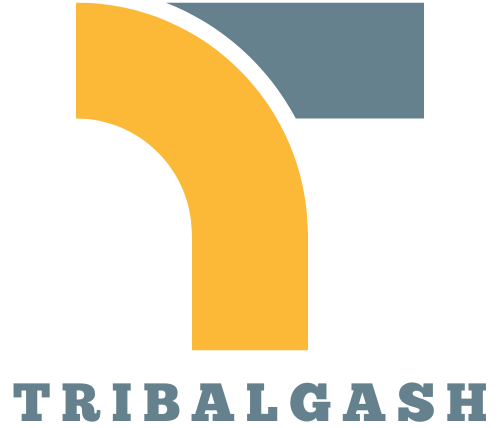In today’s fast-paced world, career development isn’t just a buzzword; it’s the secret sauce to professional success. Imagine trying to navigate a maze without a map—frustrating, right? That’s what a stagnant career feels like. Career development helps individuals chart their paths, sharpen their skills, and keep their professional journeys exciting.
Table of Contents
ToggleWhat Is Career Development?
Career development represents a continuous process of managing one’s professional life. It encompasses planning, improving skills, and navigating opportunities for advancement. Individuals engage in career development to align their interests with their long-term goals, thereby enhancing job satisfaction.
Successful career development involves setting defined objectives. These objectives guide individuals in identifying the necessary steps to achieve their desired roles. Training programs, mentorship, and networking build crucial skills that contribute to professional growth.
Employers play a vital role in facilitating career development. Organizations often provide resources such as workshops and online courses, enabling employees to acquire new competencies. Access to career resources fosters a culture of growth, motivating workers to strive for higher positions.
Feedback from supervisors and peers can significantly influence career trajectories. Constructive criticism helps individuals recognize areas for improvement, leading to skill mastery. Regular performance reviews create a structured framework for tracking progress and adjusting development plans.
Opportunities for advancement often rely on proactive career planning. Networking with industry professionals and joining relevant associations can create pathways to new positions. By staying informed about industry trends, individuals enhance their adaptability, making them more appealing candidates for future opportunities.
Career development not only aids personal advancement but also benefits organizations by cultivating a skilled workforce. This reciprocal relationship promotes long-term career satisfaction and fosters a competitive professional environment.
Importance of Career Development
Career development plays a vital role in achieving professional success. It fosters skills enhancement and helps individuals navigate their career paths effectively.
Personal Growth
Personal growth is a key component of career development. It allows individuals to discover their strengths and weaknesses, facilitating self-awareness. Building new skills and gaining experiences contribute to increased confidence. Individuals who pursue ongoing education and training often find greater satisfaction in their careers. Engaging with mentors provides guidance and insights that foster personal development. Career development also encourages adaptability, enabling individuals to respond to changes in their fields. Seeking challenges and embracing feedback contribute to a rewarding professional journey.
Professional Opportunities
Professional opportunities arise through proactive career development. Individuals who strategically network often uncover hidden job openings and connections. Participating in industry-specific events expands one’s professional circle and fosters relationships. Employers tend to recognize and promote employees who display a commitment to development. Additionally, acquiring new skills can lead to roles with higher responsibilities and increased salaries. Identifying trends in the industry informs individuals of the skills in demand, allowing them to position themselves advantageously. Ultimately, career development creates a pathway to diverse professional opportunities and job satisfaction.
Key Components of Career Development
Career development encompasses various components that collectively enhance professional growth. Understanding these aspects enables individuals to take proactive steps toward achieving their career goals.
Goal Setting
Establishing clear and measurable goals plays a crucial role in career development. Individual goals shape the direction of one’s career path, providing a focus for ongoing efforts. Goals must align with personal values, interests, and long-term career aspirations. Creating short-term and long-term objectives allows for a structured approach, guiding daily actions toward desired outcomes. Regularly reviewing and adjusting goals ensures relevance and adaptability in a dynamic work environment.
Skill Assessment
Evaluating personal skills is essential for effective career development. Individuals must identify strengths and weaknesses to understand the skills required for desired roles. Conducting skill assessments helps pinpoint areas for growth and targets learning opportunities. Using tools such as self-assessments, performance reviews, and feedback from colleagues can provide valuable insights. As skills improve, professionals become more competitive and better positioned for advancement.
Networking
Building a professional network is fundamental to career development. Networking opens doors to new opportunities and enhances visibility within the industry. Engaging with peers at industry events, workshops, and conferences fosters valuable connections. Strong networks provide access to mentorship, advice, and job leads, enriching one’s career journey. Maintaining relationships with contacts through regular communication strengthens these connections and promotes professional growth.
Strategies for Effective Career Development
Effective career development involves numerous strategies that enhance professional growth and opportunities.
Continuous Learning
Continuous learning is essential for career development. Engaging in workshops, courses, and certifications keeps skills sharp and relevant. Professionals who actively seek knowledge adapt easily to industry changes. Employers recognize the value of employees committed to improvement, often rewarding them with career advancement. Resources like online platforms, webinars, and industry conferences provide additional avenues for learning. Staying updated on new technologies and methodologies enhances job performance. Continuous learning enables individuals to maintain competitiveness and achieve career goals more efficiently.
Seeking Mentorship
Seeking mentorship significantly impacts career growth. Mentors provide valuable insights, helping professionals navigate complexities within their fields. Relationships with experienced individuals cultivate knowledge sharing that otherwise may remain inaccessible. Open communication with mentors paves the way for constructive feedback and guidance on potential career paths. The support received often fosters confidence and encourages proactive goal setting. Engaging in mentorship also expands professional networks, leading to new opportunities. Realizing the importance of mentorship can accelerate career development while cultivating long-lasting industry connections.
Career development is essential for navigating the complexities of today’s job market. By actively managing their professional journeys individuals can enhance their skills and align their aspirations with their goals. This proactive approach not only fosters personal growth but also leads to greater job satisfaction.
Employers who support career development initiatives create a culture of growth that benefits everyone. With clear objectives and a strong professional network individuals can seize opportunities and adapt to industry changes. Continuous learning and mentorship play crucial roles in this process.
Ultimately investing in career development leads to a more skilled workforce and a more fulfilling professional experience. Embracing this journey empowers individuals to thrive in their careers and contributes to a dynamic and competitive workplace.









